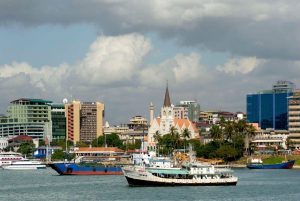Airline passenger revenues will drop by USD 314 Billion in 2020, a 55 percent decline as compared to 2019, the International Air Transport Association (IATA) has said.
According to an analysis released on March 24, this year, IATA estimated a loss of USD 252 Billion in lost revenues if severe restrictions were to persist for three months.
“The updated figures reflect a significant deepening of the crisis since then, and reflect the following parameters: Severe domestic restrictions lasting three months, some restrictions on international travel extending beyond the initial three months and worldwide severe impact, including Africa and Latin America (which had a small presence of the disease and were expected to be less impacted in the March analysis),” IATA stated.
The report further indicated that the full year passenger demand for domestic and international travel is expected to decline by 48 percent as compared to 2019.
The elements driving this decline are the overall economic developments whereby the world is heading for recession. This is because the economic shock of the COVID-19 crisis that is expected to be most severe in Quarter 2 when GDP is expected to shrink by 6 percent.
Another element is travel restrictions which will deepen the impact of recession on demand for travel with the most severe impact expected to be in Quarter 2.
“The industry’s outlook grows darker by the day. The scale of the crisis makes a sharp V-shaped recovery unlikely. Realistically, it will be a U-shaped recovery with domestic travel coming back faster than the international market. We could see more than half of passenger revenues disappear. That would be a USD 314 billion hit. Several governments have stepped up with new or expanded financial relief measures but the situation remains critical. Airlines could burn through $61 billion of cash reserves in the second quarter alone. That puts at risk 25 million jobs dependent on aviation. And without urgent relief, many airlines will not survive to lead the economic recovery,” Alexandre de Juniac, IATA’s Director General and CEO said.
He emphasised on the need for governments to include aviation in their stabilisation packages. Airlines, Mr. de Juniac said, are the core of a value chain that supports 65.5 million jobs globally. Each of the 2.7 million airline jobs supports 24 more jobs in the economy.
“Financial relief for airlines today should be a critical policy measure for governments. Supporting airlines will keep vital supply chains working through the crisis. Every airline job saved will keep 24 more people employed. And it will give airlines a fighting chance of being viable businesses that are ready to lead the recovery by connecting economies when the pandemic is contained. If airlines are not ready, the economic pain of COVID-19 will be unnecessarily prolonged,” said de Juniac.
Among the reliefs that IATA has proposed for governments to consider include direct financial support to passenger and cargo carriers to compensate for the reduced revenues and liquidity attributable to travel restrictions imposed as a result of COVID-19, loans, loan guarantees and support for the corporate bond market by governments and tax relief.



